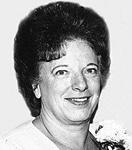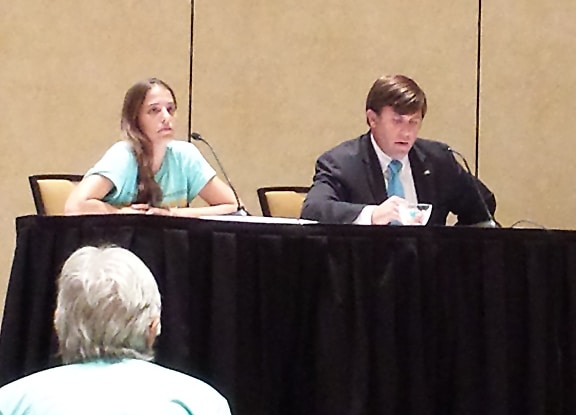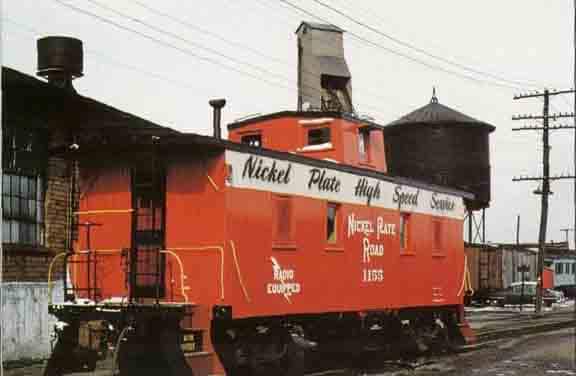With a yellow hat and golf cart emblazoned with his nickname, John “Gig” Gigliotti has perhaps become as iconic on the Wildwood Boardwalk as the yellow tram cars he oversees. A former Conrail train conductor, the 85-year-old West Deptford resident returns to his North Wildwood home each summer, and to his job supervising eight 5-m.p.h. electric trains that transport boardwalk goers along the two-mile stretch. The service has been a staple since 1949.
It’s frequent that workers at the eateries and stands along the boardwalk call out “Giggy” as he drives up and down the planks during 16-hour days, seven days a week, April through September.
Read the complete story at the Philadelphia Inquirer.
(Gigliotti is a member of SMART Transportation Division Local 1375 at Philadelphia.)
Author: amyr
A worker at a North Las Vegas business died in a railroad tank car early Saturday, the North Las Vegas Fire Department said.
Witnesses told fire crews that their co-worker had lost consciousness inside the empty tank car and was unable to climb out. Firefighters discovered that the tank car contained highly volatile ethanol vapors and appeared to be unsafe, said Capt. Cedric Williams, a spokesman for the department.
Read the complete story at the Las Vegas Sun.
WASHINGTON (AP) — In an election-year rebuttal to Republicans, President Barack Obama will sign an executive order Thursday requiring federal contractors to give their workers more rights in labor disputes. The move comes one day after House GOP lawmakers voted to sue Obama for allegedly misusing presidential powers.
Under the order, companies seeking large federal contracts will be barred from making workers sign agreements saying that an arbitrator, rather than a judge, gets to hear sexual assault or civil rights grievances and make binding decisions. The order also requires that workers be given information in each pay period to help them determine whether their paychecks are accurate, White House officials said.
Read the complete story at the Associated Press.
Edythe Mae Walter, former International president of the Auxiliary of the United Transportation Union, passed away peacefully on July 30, 2014. She was 78.
She is survived by her husband, Bob Walter, with whom she celebrated 60 years of marriage on June 22. They also shared their birth date of April, 28, 1936. She is also survived by children, Cindy (Denny) Robish, Tom (Tammie) Walter and Amy (Andy) Fox, and grandchildren Alesha Robish, Erica and Nathan Walter, and Logan, A.J. and Parker Fox.
Family and friends will be received Friday, Aug. 1, 2014, from 6-8 p.m. and Saturday, Aug. 2, 2014, from 12-2 p.m. at the Marsh Funeral Home, 201 W. Main St. in Woodville, Ohio. Funeral services will be conducted at 2 p.m. Saturday. Interment will be at Westwood Cemetery in Woodville, Ohio. Considerations for memorial contributions are to Ohio State Grange-Youth Division, 16303 Township Rd. 608, Fredericktown, Ohio 43019 or Auxiliary of UTU Scholarship Fund, 2153 N. Hwy 99, Emporia, KS 66801-8101. Those wishing to express a word of encouragement, share a memory or photo, may do so at marshfuneralhomes.com.
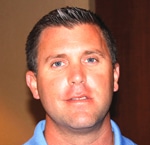
SMART Transportation Division Georgia State Legislative Director Matt Campbell testified before the U.S. Environmental Protection Agency July 29 in Atlanta, addressing the concerns of the union and its members regarding the agency’s proposed Clean Power Plan.
In its proposed rule, the EPA is proposing state-specific rate-based goals for carbon dioxide emissions from the power sector, as well as guidelines for states to follow in developing plans to achieve the state-specific goals.
The rule seeks to reduce carbon dioxide emissions from existing fossil fuel-fired power plants in the United States.
The EPA plan would reduce carbon emissions from the power sector by 30 percent nationwide and reduce particle pollution, nitrogen oxides and sulfur dioxide by more than 25 percent.
Campbell noted that the transportation of coal by U.S. railroads is vitally important to the welfare of the members he represents.
“We are concerned and we care about this issue because of the impact this plan will have on our jobs and our future. There are 25 freight railroads in Georgia that employ thousands of people. These are not temporary jobs – they are careers. These people’s – my co-workers, your neighbors – precious careers are in jeopardy because of the hit being taken by the coal industry,” Campbell said.
Campbell noted that nearly 40 percent of all freight railroad cars in the U.S. are coal cars, accounting for 25 percent of the freight rail industry’s revenue and 20 percent of all freight rail jobs.
“Hauling coal is a big part of what our members do and it accounts for about 20 percent of all freight railroad jobs in America,” said SMART Transportation Division President John Previsich. “Our state directors are playing a vital role in trying to make this proposed rule workable.”
Alternate National Legislative Director John Risch noted that Pennsylvania State Legislative Director Paul Pokrowka and Colorado State Legislative Director Carl Smith would be also be testifying at EPA hearings in their home states this week.
Added Risch: “This proposed rule, coupled with EPA’s recently enacted mercury rule, will cause one-third of our nations coal-fired power plants to shut down in the next six years.”
“We are working with our allies in Washington on ways to make carbon capture and storage economically viable so coal remains a part of America’s energy mix for the foreseeable future,” National Legislative Director James Stem said.
Campbell went on to provide SMART Transportation Division’s suggestions for amending the proposed Clean Power Plan, including providing states with credit for prior carbon dioxide reductions and delaying implementation of the plan by several years to allow states and affected sources adequate time to prepare and submit state plans.
“We believe that the rule is premature since we do not know the extent to which other nations, particularly large developing countries, will be willing to commit to a truly global program of greenhouse gas reductions,” Campbell said. “We, America, cannot ‘go it alone’ and expect that our actions will have any meaningful climate impact in a world economy that is using more coal and other fossil fuels every day. Developing nations already emit more carbon dioxide than advanced industrial nations, and the Department of Energy projects that their share of global emissions will grow steadily, and will continue to do so, regardless of what the United States decides to do.
“Before I surrender the microphone, I want to make something clear. I love our environment and I am thankful for the clean air we breathe. That being said, I value my career on the railroad that allows me to provide for my family.
“As a middle class worker, speaking on behalf of other middle class workers, I plead with the EPA to listen to our recommendations and work to find a sensible, common sense solution that works for everyone.”
SMART Transportation Division Georgia State Legislative Director Matt Campbell, right, testifies at a U.S. Environmental Protection Agency hearing July 29 in Atlanta regarding the agency’s proposed Clean Power Plan.
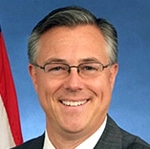
The following message was sent to the SMART Transportation Division National Legislative Office from Federal Railroad Administrator Joe Szabo.
Friends:
Last week, the U.S. Department of Transportation released two companion rulemaking proposals to improve the safe transportation of large quantities of flammable materials by rail. The Pipeline and Hazardous Materials Administration’s (PHMSA) Notice of Proposed Rulemaking (NPRM) and Advanced Notice of Proposed Rulemaking (ANPRM) are the latest in a comprehensive effort to minimize risk and ensure the safe transport of hazardous materials by rail – particularly crude oil and ethanol.
As U.S. Department of Transportation Secretary Anthony Foxx said, “Safety is our top priority, which is why I’ve worked aggressively to improve the safe transport of crude oil and other hazardous materials since my first week in office. While we have made unprecedented progress through voluntary agreements and emergency orders, today’s proposal represents our most significant progress yet in developing and enforcing new rules to ensure that all flammable liquids, including Bakken crude and ethanol, are transported safely.”
The NPRM proposes enhanced tank car standards, a classification and testing program for mined gases and liquids and new operational requirements for high-hazard flammable trains (HHFT) that include braking controls and speed restrictions. Additionally, within two years, it proposes the phase out of the use of older DOT 111 tank cars for the shipment of packing group I flammable liquids, including most Bakken crude oil, unless the existing DOT 111 tank cars are retrofitted to comply with new tank car design standards. The ANPRM seeks further information on expanding comprehensive oil spill response planning requirements for HHFT’s.
Your feedback is a significant step in the rulemaking process. The public comment period for the NPRM and ANPRM will be open for 60 days, so review the proposed rulemakings and use the docket to submit your comments.
We owe it to the American public to seek all opportunities to drive continuous safety improvement. FRA is supporting PHMSA in these rulemakings and we will continue to work with PHMSA to identify and reduce risk wherever it exists in rail transportation.
In the sleepy and quaint town of Vermilion, Ohio, along the shores of Lake Erie, where boats are docked and buoyed along the water’s edge and early 20th century Victorian architecture still abounds, there will be a homecoming. Nickel Plate Caboose #1155 is coming home! However, she needs your help to make it back.
The Friends of Harbour Town, Inc. (FOHT), have proudly announced that they have acquired the #1155 caboose. They recognize that it is a great asset reflecting Vermilion’s heritage and that by displaying it, current and future generations will be able to reflect on that heritage.
The caboose will be located next to the Nickel Plate Railroad Depot, where it once passed every day on the St. Rt. 60 crossing. The depot is also undergoing a dedicated restoration. Diane L. Bailey Chesnut, of FOHT describes the planned site named The Greater Vermilion Area Heritage Center.
“We will be looking forward to presenting Vermilion’s heritage to our school children upon their spring field trips within their hometown and to experience the joy of sitting in a big red 1909 caboose. We will be offering the children the railroads’ Operation Lifesaver Program.
“We will be making reading material available on the big red caboose and 1882 Nickel Plate Depot. We will also be welcoming visitors, rail fans, and have programs/events on site,” Chestnut said.
She also stressed the importance for visitors of being able to actually feel and touch the caboose, instead of merely looking at a picture of it.
Funds of $10,000 are being raised to build a display track, move the caboose and begin repairs, both inside and out.
“We were recently informed that the Meadowcroft Rockshelter and Historic Village in association with the Smithsonian Institution in Avella, Pennsylvania, has development plans and we need to fund raise to have the caboose moved off of the historic site by the end of August 2014 to our Vermilion, Ohio location,” Chestnut said, stressing that FOHT is in desperate need of donations to make all of this happen.
All donations are tax deductible as FOHT is a 501(c) (3). Checks can be made out and sent to: The Friends of Harbour Town, Inc., P. O. Box 274, Vermilion, Ohio 44089. (Please denote “FOHT caboose project” on the memo line.)
For more information, visit https://sites.google.com/site/nkpcaboose1155. For additional information, please contact Don Glass at (440) 541-8916.
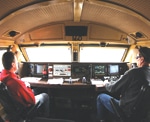
Now is the time to contact your legislators in the House of Representatives and ask them to co-sponsor and support H.R. 3040.
Introduced in the House Aug. 2 by U.S. Reps. Michael Michaud (D-Maine) and Chellie Pingree (D-Maine), this legislation will require that “no freight train or light engine used in connection with the movement of freight may be operated unless it has a crew consisting of at least 2 individuals, one of whom is certified under regulations promulgated by the Federal Railroad Administration as a locomotive engineer … and the other of whom is certified under regulations promulgated by the Federal Railroad Administration as a conductor pursuant to section 20163.”
“This legislation is not only about the safety of the American public and the safety of railroading operating crews, it is an opportunity to prevent what in my opinion is an unsafe operating practice – having only one crew member aboard a train,” said SMART TD President John Previsich. “This measure will not only protect our communities, it will protect our jobs.”
The legislation reflects heightened concerns over crew size arising from the tragic July 6 derailment of a Montreal, Maine & Atlantic fuel train in Lac Mégantic, Quebec, which killed 47 and destroyed the center of the town. The MM&A train was crewed by a single person.
The Association of American Railroads (AAR) and the American Short Line and Regional Railroad Association (ASLRRA) last year sent memos to Capitol Hill opposing this important piece of legislation, stating in part: “H.R. 3040 mandates freight trains operate with a certified locomotive engineer and a certified conductor without taking into consideration the realities of current industry practices and the overall rail safety record in the United States.”
In a letter to all members of Congress, the SMART TD’s Legislative Office wrote: “The reality is that 99+ percent of America’s trains already operate with two federally-certified crew members. It was the July 6, 2013, accident at Lac-Mégantic, Quebec, where 47 people lost their lives and a town was destroyed, that gave rise to this legislation.
“That accident happened because a crew member, working alone, had his train roll away causing horrific death and devastation.
“There are many tasks that must be performed by the crew of a freight train that one person cannot accomplish alone.
“Under current Federal Railroad Administration regulations and railroad operating rules: a single person crew cannot make a Class I air brake test; one person cannot act as a first responder when a collision at a road crossing occurs; one person cannot inspect his or her train when it breaks in two or derails, including when there is the possible release of hazardous materials; and one person cannot inspect his or her train when cars in that train become defective.
“Another reality is that freight train crews work long hours, day and night, with few set shifts, and are on call 24/7. With as little as 1 hour and 15 minutes’ notice, we are required to report to work for a 12-hour shift, often operating trains laden with hazardous materials. Fatigue in the freight railroad industry is our number one safety problem, and having two crew members is the main way that we help mitigate fatigue. Having two crew members is also the best way to assure compliance with our complex operating rules. Rules such as properly securing your train so it doesn’t roll away and destroy a town.
“H.R. 3040 – the Safe Freight Act – is a bipartisan bill that will ensure that trains are operated safely everywhere in America. We respectfully ask that you support this important bill and consider becoming a co-sponsor.”
To send a message to your House representative to co-sponsor and support this legislation, click here.
By entering your ZIP code and street address, a webpage prepared by the SMART will identify your representative in both the House and. After entering your email address, the website will send a prepared message to your legislators that reads, in part: “Please support H.R . 3040, the Safe Freight Act, which will improve railway safety by eliminating the risky practice of single-person train crews.
“A two-person crew would likely have been able to divert the runaway train that derailed in Lac-Megantic, Quebec this summer. A derailment that killed nearly 50 people, destroyed more than 40 buildings and caused hundreds of millions of dollars in environmental damage.
“By supporting H.R. 3040, you are taking a necessary step to end the dangerous practice of single-person crews that put the safety of the public, the crew, and the well being of our economy at risk.”
WASHINGTON – The U.S. Department of Transportation’s Federal Motor Carrier Safety Administration (FMCSA) and the U.S. Department of Labor’s Occupational Safety and Health Administration (OSHA) have signed a Memorandum of Understanding to strengthen the coordination and cooperation between the agencies regarding the anti-retaliation provision of the Surface Transportation Assistance Act (STAA). The Memorandum allows for the exchange of safety, coercion and retaliation allegations, when received by one agency, that fall under the authority of the other.
The STAA protects drivers and other individuals working for commercial motor carriers from retaliation for reporting or engaging in activities related to certain commercial motor vehicle safety, health or security conditions.
“This strengthened partnership with OSHA extends our inter-agency collaboration specifically to include the sharing of reports of alleged coercion – companies forcing or intimidating truck or bus drivers to violate federal safety regulations,” said FMCSA Administrator Anne S. Ferro. “Pressuring drivers to stay behind the wheel beyond their hours-of-service limits, or to disregard other federal safety rules, seriously jeopardizes the safety of every traveler on our highways and roads. Commercial truck and bus companies that knowingly endanger the motoring public, or retaliate against whistleblowing employees, will be prosecuted to the fullest extent of the law.”
“Commercial vehicle drivers who report injuries, hazards and illegal work practices should not fear retaliation for speaking out about unsafe work conditions,” said Assistant Secretary of Labor for Occupational Safety and Health Dr. David Michaels. “Through this agreement, we are sending a clear message that silencing workers who try to do the right thing is unacceptable for workers and also unsafe for the public.”
FMCSA and OSHA each play a specialized role in protecting the safety of commercial drivers and of the motoring public. OSHA investigates employee complaints of retaliation by commercial truck and bus companies. FMCSA is responsible for regulating both industries and – along with its state law enforcement partners – ensuring company and driver compliance with federal safety regulations, including driver on-duty and driving time limits to prevent fatigue, commercial driver’s licenses rules, medical qualifications, drug and alcohol testing, hazardous materials safety standards and others.
In the last nine years, OSHA has processed more than 2,800 cases under STAA. Recently, OSHA ordered an Iowa waste removal company to reinstate a driver and pay the employee more than $123,000 in compensation after the company terminated the driver for raising safety concerns over company routes that violated U.S. Department of Transportation regulations, potentially causing serious injury to the worker, co-workers or the public. For more information on that case, read the press release at: https://www.osha.gov/pls/oshaweb/owadisp.show_document?p_table=NEWS_RELEASES&p_id=25905.
Under the MOU, FMCSA will refer employees who complain of retaliation to OSHA, and OSHA will provide FMCSA with copies of complaints filed and findings issued under STAA. The agencies will report to each other annually on information shared during the previous year. The MOU also provides that FMCSA will process OSHA requests for information from various FMCSA databases.
The public, commercial drivers, motor carriers and other industry members may file a safety, service or discrimination complaint against a household goods moving company, bus or truck company, including hazardous materials hauler or a cargo tank facility, by calling toll free 1-888-DOT-SAFT (1-888-368-7238) from 9:00 a.m. to 7:00 p.m., Monday through Friday, Eastern Time. Complaints may also be submitted through FMCSA’s National Consumer Complaint website at: http://nccdb.fmcsa.dot.gov.
FMCSA was established as a separate administration within the U.S. Department of Transportation on January 1, 2000, pursuant to the Motor Carrier Safety Improvement Act of 1999. Its primary mission is to reduce crashes, injuries and fatalities involving large trucks and buses. For more information on FMCSA’s safety programs and activities, visit www.fmcsa.dot.gov.
OSHA enforces the whistleblower provisions of the Occupational Safety and Health Act and 21 other statutes protecting employees who report violations of various workplace, commercial motor vehicle, airline, nuclear, pipeline, environmental, railroad, public transportation, maritime, consumer product, motor vehicle safety, health care reform, corporate securities, food safety and consumer financial reform regulations. Additional information is available at: http://www.whistleblowers.gov.
Under the Occupational Safety and Health Act of 1970, employers are responsible for providing safe and healthful workplaces for their employees. OSHA’s role is to ensure these conditions for America’s working men and women by setting and enforcing standards, and providing training, education and assistance. For more information, visit www.osha.gov.

The suit was filed Wednesday, the same day the U.S. Department of Transportation announced proposed rules to improve the safety of crude oil shipments by rail. Several serious oil train accidents resulting in spills, fires and fatalities have increased scrutiny on the industry.
Read the complete story at The Modesto Bee.
